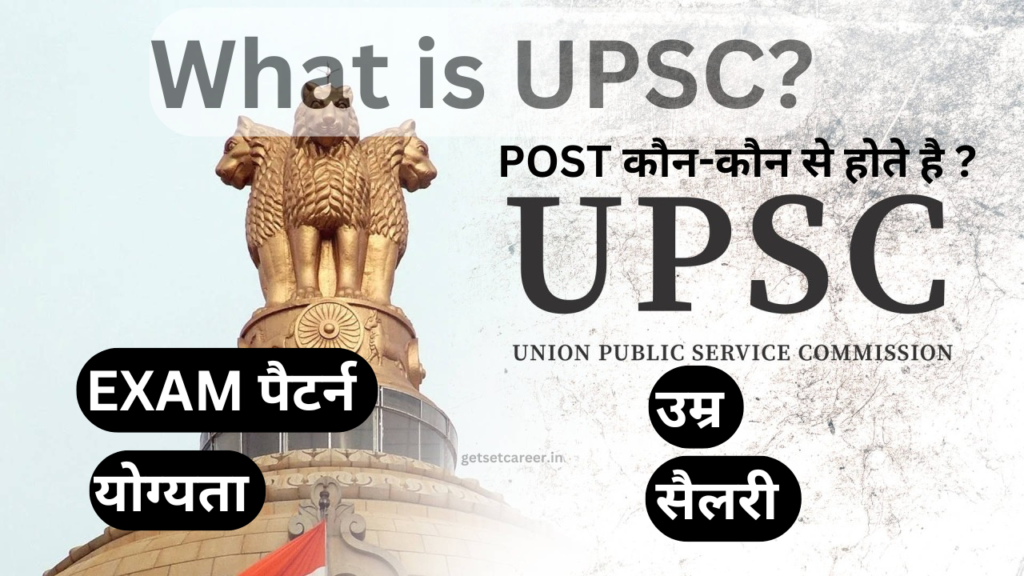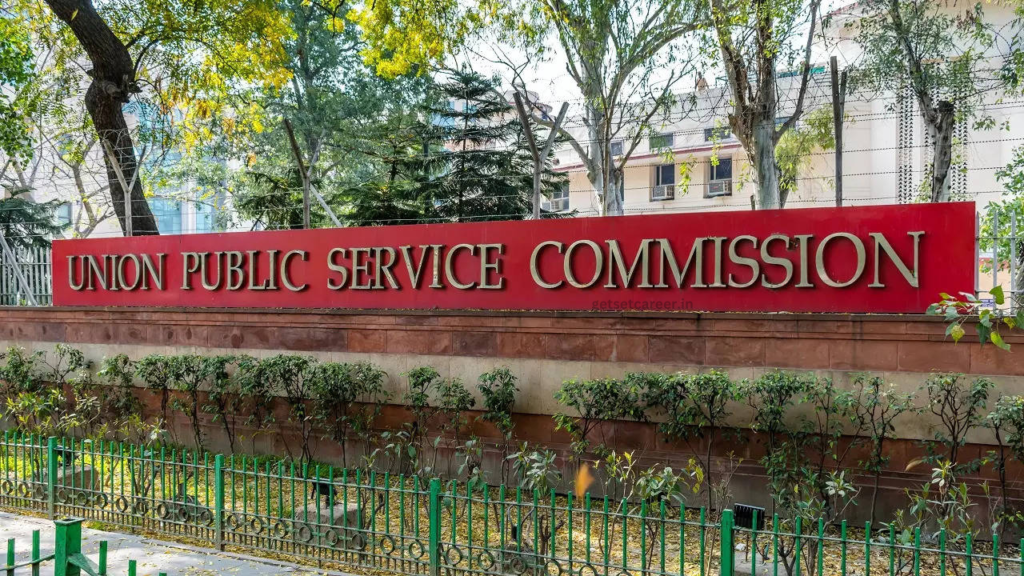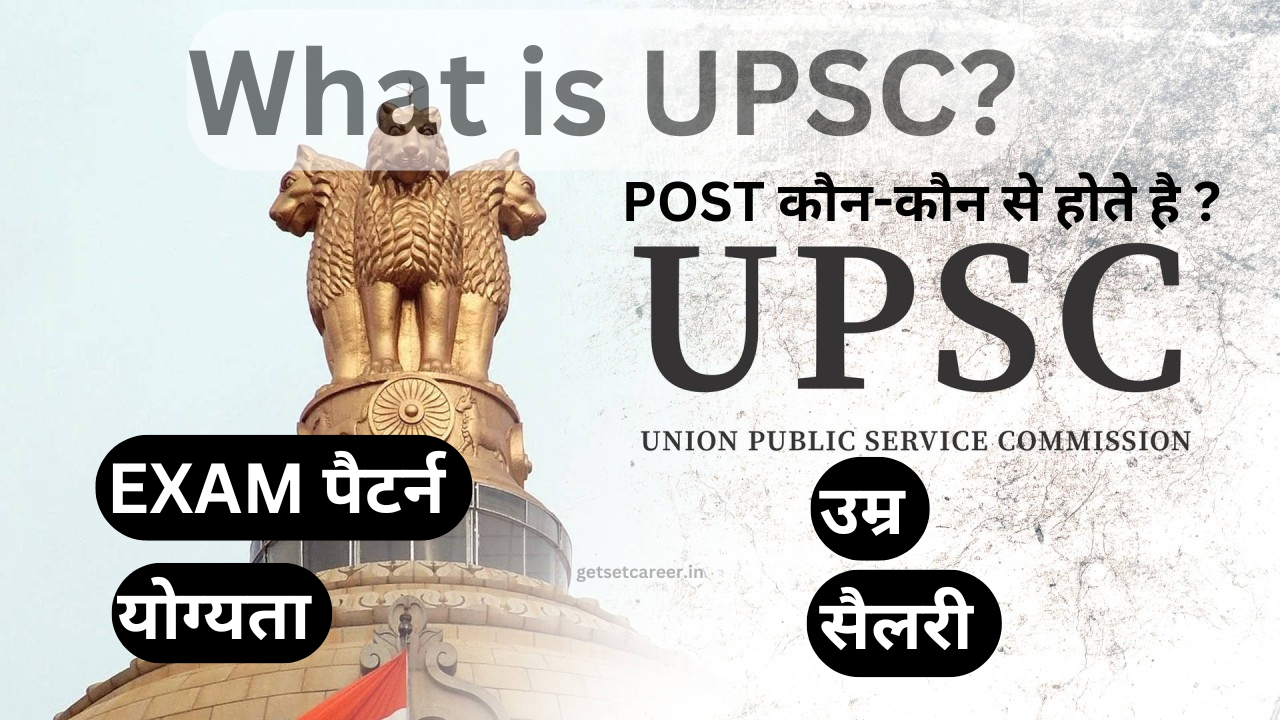An Introduction to UPSC

One of the most prominent and sought-after organizations in India is the Union Public Service Commission (UPSC). In addition to recruiting people for important government positions including the Indian Administrative Service (IAS), Indian Foreign Service (IFS), and Indian Police Service (IPS), it also administers a number of competitive exams, one of which is the much sought-after Civil Services Examination (CSE). With thousands of applicants each year, UPSC is the mainstay of Indian bureaucracy.
Table of Contents
UPSC’s Evolution and History
The UPSC was founded in response to the necessity of hiring capable individuals for the administration during the British Raj. The Charter Act of 1833, which established the framework for an open, competitive examination system, may be traced back to the beginning. The Federal Public Service Commission was founded in 1926, and the UPSC was created in accordance with Article 315 of the Indian Constitution following India’s independence in 1947.
The UPSC’s development is a reflection of the evolving demands placed on the Indian administrative system, with adjustments and revisions made to meet the problems of contemporary government.
The UPSC’s Duties and Functions
The recruitment of personnel for the central government of India is one of the UPSC’s many responsibilities. Among its essential roles are:
- administering tests in order to get appointments to postings and central services.
- direct hiring through interview-based selection.
- giving the government advice on public servant discipline proceedings.
- Managing transfers and promotions.
- creating policies for hiring procedures.
- Transparency, merit-based hiring, and a methodical approach to public service entry are all guaranteed by the UPSC.
UPSC Examinnations
Numerous exams are administered by the UPSC in order to recruit candidates for various public service positions. These tests cover a wide range of professions, including engineering, medicine, the public service, and defense. Here are a few important exams:
Civil Services Examination(CSE)
In order to select officers for the Indian Administrative Service (IAS), Indian Police Service (IPS), and Indian Foreign Service (IFS), among other positions, this is the most popular UPSC test. The CSE serves as the entry point to top government services with its demanding three-stage application process.
Engineering Services Examination (ESE)
Officers with technical backgrounds in civil, mechanical, electrical, and electronics engineering are recruited by this exam for technical jobs in the government.
The Comprehensive Medical Services Assessment (CMS)
This test is intended for medical professionals seeking jobs in municipal companies, railroads, and the defense department, among other central government agencies.
Examination for Central Armed Police Forces (CAPF)
Candidates for assistant commandant positions in the Border Security Force (BSF), Central Reserve Police Force (CRPF), and other forces are recruited through this exam.
Others
tests for Indian Economic Services, Indian Statistical Services, and Special Class Railway Apprentice (SCRA) are also administered by UPSC in addition to the aforementioned tests.
What is BPSC- Bihar Public Service Commissiohttps://www.getsetcareer.in/what-is-bpsc-bihar-public-service-commission/n?
A Comprehensive Summary of the Qualification Standards for the Civil Services Examination
In order to qualify for the CSE, applicants need to meet the following criteria:
- Nationality: Candidates for the IFS, IPS, and IAS must be Indian citizens.
- Age Limit: With exceptions for reserved categories, the standard age limit is between 21 and 32 years old.
- Educational Requirement: It is required to have a graduate degree from any accredited university.
Examination Pattern: Prelims, Mains, and Interview
The Civil Services Examination is divided into three stages:
Preliminary Examination (Prelims)
There are two objective papers for prelims:
- General Studies Paper I
This includes subjects like history, geography, economics, environment, and current affairs. - General Studies Paper II (CSAT)
The CSAT tests aptitude, reasoning, and comprehension skills.
Main Examination (Mains)

The Mains is a descriptive exam with nine papers, focusing on subjects chosen by the candidate along with compulsory language papers. Key papers include:
- Essay
- General Studies (I-IV)
- Optional Subjects (two papers)
Personality Test (Interview)
Candidates who clear the Mains move on to the final stage – the Interview or Personality Test. The interview panel assesses candidates’ general knowledge, intellectual capability, and ethical approach to public service.
Subjects and Syllabus
The syllabus for UPSC is vast and covers various domains, including:
- History (Indian and World)
- Geography (Physical, Economic, Social)
- Polity (Constitution, Governance, Social Justice)
- Economy
- Environment and Ecology
- Science and Technology
- The optional subjects range from anthropology, political science, and geography to engineering, law, and literature.
Tips for Each Stage
- Prelims: Focus on speed and accuracy. Consistent revision of key areas like current affairs and static subjects is crucial.
- Mains: Answer writing practice is key. Analytical thinking and presenting arguments in a structured manner are vital for scoring well.
- Interview: Maintain a balanced personality, stay updated with current affairs, and practice mock interviews.
Importance of UPSC in Indian Governance
UPSC plays a pivotal role in ensuring that the administrative machinery of India functions smoothly. Through a rigorous selection process, it ensures that only the most capable and ethical candidates enter the civil services. The Commission upholds the values of integrity, merit, and fairness, which are essential for maintaining public trust.
Challenges Faced by UPSC Aspirants
While UPSC is a dream for many, the path is filled with challenges, including:
- Vast Syllabus: The extensive syllabus requires thorough and deep study.
- High Competition: With lakhs of aspirants and limited seats, the pressure is immense.
- Unpredictability: The exam pattern and the dynamic nature of current affairs make preparation tricky.
- Mental and Physical Stress: The prolonged preparation process demands perseverance and endurance.
Strategic Tips for Success in UPSC
Planning and Time Management
A well-structured plan is essential. Break down the syllabus into manageable chunks and follow a strict timeline.
Resources: Books, Coaching, and Self-study
Standard books like NCERTs and reference materials such as Laxmikant for Polity, and Spectrum for History, form the backbone. Coaching can provide direction, but self-study is crucial for understanding concepts deeply.
Managing Stress and Staying Consistent
Consistency is key. Practicing mindfulness techniques, maintaining a healthy lifestyle, and taking regular breaks can help manage stress
Impact of UPSC on Career Development
Clearing the UPSC opens up numerous opportunities for growth and impact. Civil servants play a significant role in shaping the nation’s policies, driving reforms, and ensuring the implementation of government schemes. The respect, job security, and authority associated with the service make it a highly attractive career option.
Myths and Realities Surrounding UPSC
Myth: Only people with high IQ can clear UPSC.
Reality: While intelligence helps, hard work and persistence are the keys to cracking the exam.
Myth: You need to study 16 hours a day.
Reality: Quality matters more than quantity. Studying with focus and understanding is far more effective.
Notable UPSC Officers and Their Contributions
Numerous UPSC officers have made significant contributions to the country. Some prominent names include:
Kiran Bedi: India’s first woman IPS officer who became a symbol of women empowerment and prison reforms.
S. Jaishankar: A former IFS officer, now serving as India’s External Affairs Minister, who played a crucial role in foreign diplomacy.
Coclusion
UPSC exams are the gateway to India’s civil services, offering candidates a chance to contribute to the nation’s progress. While the journey is challenging, with determination, strategy, and resilience, success is achievable. For aspirants, the UPSC isn’t just an exam but a path to personal and professional growth, enabling them to become change-makers in society.
